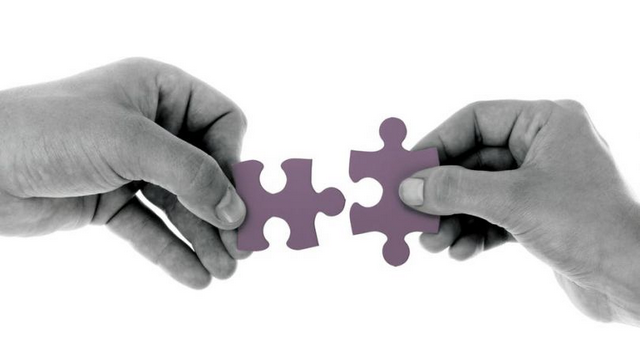
By Andre van Heerden, Director at The Power of Integrity Ltd
Understanding people is a primary focus of leadership, but it requires us to see individuals in the context of their relationships. Sadly, we quickly forget that everything we know about human nature and personality applies to every person we come into contact with. They all need freedom to flourish, all yearn for fulfilment, all experience pain and suffering, and all seek redemption. Being oblivious of their sensibilities inhibits our own growth.
Alasdair McIntyre emphasises that we are “dependent, rational animals” who develop self-knowledge only through relationships. This makes honesty indispensible in ensuring we avoid self-deception and the many psychological deformities that flow from it.
Untruth is where dysfunction arises in relationships, but it’s hard enough being honest with ourselves, let alone other people. Our personal complexity – our capabilities and frustrations, aspirations and anxieties, desires and inadequacies – makes interaction with others, equally enigmatic, infinitely more complicated. Getting relationships right is notoriously difficult, but that is precisely what leadership demands.
Contemporary society makes it even more difficult. Family breakdown, the disintegration of community, the pressures of work, financial insecurity, and the loss of religious faith and moral certitude, all take their toll. Meanwhile, terrorism, war, famine, pandemics, and environmental disaster are constantly in our faces as are the threats of theft, violence, and vandalism. The consequent loss of confidence tempts us to adopt Darwinian rules of survival.
Moreover, research on users of Twitter, MySpace, and Facebook indicates that technology-driven social networking fosters superficiality, deceitfulness, bullying, and all manner of malevolent behaviour.
However, culture is not a straitjacket. All societies have people who manifest greed, pride, and cruelty, and others who exhibit love, justice, and courage. Culture is a powerful influence on character, but the choice remains our own.
The universal threat to relationships actually lies beneath culture. It is seen in the media every day in the corrupt politician, the dishonest businessman, the manipulative lawyer, the unprofessional doctor, the unfaithful husband, the violent criminal, the drug addict, the sports cheat, the soccer hooligan, and wherever relationships disintegrate.
That element is unrestrained pride, or hubris.
Now this is not the justifiable feeling of pride in achievement more accurately described as euphoria or elation. Hubris is not a feeling, but a freely chosen attitude that says: “My will is the most important thing in the world”. It does not recognise the dignity of others, regarding them as objects to be used. It is radically inconsistent with love, and destroys relationships.
Hubris spawns contempt, cynicism, intolerance, and despair. It is a disease of the soul, with the out-of-control ego derailing reason and refusing to countenance the truth about oneself and the world. It is wilful self-delusion and enslavement to the lie of self-sufficiency. Knowledge of reality and acceptance of truth, the way things are, are indispensable to wholesome human relationships, yet hubris blinds us to them.
Hubris is rampant today because modern philosophy since Descartes has promoted the self-sufficient individual, and the supremacy of values (what I choose) over virtue (what is objectively good).
The dismantling of parental authority, the exaltation of promiscuity, and unrestrained consumerism send a message to the young that is anarchic and confused, but relentlessly seductive. They, in turn, carry it into adulthood and the workplace, where it erupts in all manner of anti-social behaviour, producing alienation, frustration, anxiety, and self-loathing.
The purpose of relationships is fulfilment, and refusal to commit to the fulfilment of others erodes one’s own. Corrupting one’s character for a temporary satisfaction of hubris is a fool’s bargain.
Thomas Aquinas told us “love is the form of all the virtues”, and since love means unselfishly seeking the fulfilment of others, it is the antidote to hubris. In practical terms, how do we love others and encourage them to respond in kind? There are five time-honoured guidelines:
Empathy is the ability to think and feel like the other person, understanding their hopes and fears, their pleasure and pain. It means suppressing our own feelings in favour of theirs. It is learned in the home and at school, and is best developed through stories of people in other times and places, underlining yet again the value of history and classic literature.
Compassion is sharing in someone else’s suffering. It is tested in concrete situations — spending time with a dying person; visiting a prisoner; helping a colleague at work; interrupting a busy schedule to assist someone whose car has broken down. It requires all the virtues, especially courage, and the social awareness that comes with prudence.
Humour energises relationships, but can become corrupted. Most humour today is profane, pornographic, and abusive, and destructive of relationships. The key to healthy humour is a sense of irony, which recognises human frailty, fallibility, and fractiousness, enabling us to laugh at ourselves and others when we take ourselves too seriously.
Forgiveness is uncommon in these narcissistic times. It offends our hubris, but forgiveness is the only way to remove the cancer of hate, rage, and resentment that destroys any hope of personal fulfilment. Forgiveness is therapy for the offended; contrition is therapy for the offender.
Faithfulness is being true in relationships, a commitment to the total support that builds confidence and hope, enabling us to trust one other in all things. It is the acid test for integrity — personal, communal, and corporate.
The scarcity of integrity and respect for others today is a direct challenge to leaders. The challenge is the conflict between hubris and love, and can only be confronted by each of us as individuals. The reality is that to change all your relationships for the better immediately, you only have to change one person — yourself. Self-leadership restores relationships.
The above is a précis of Chapter Nine of Leaders and Misleaders by Andre van Heerden. In the next article, Andre will consider how ‘Leaders unleash creativity‘
